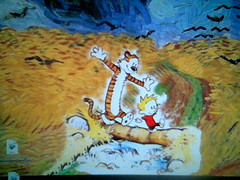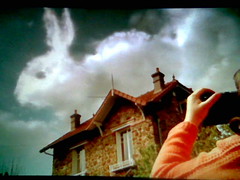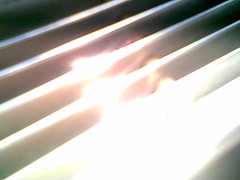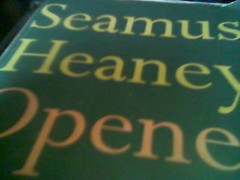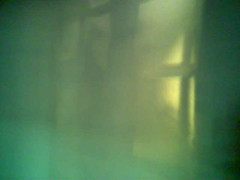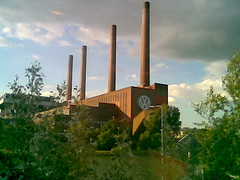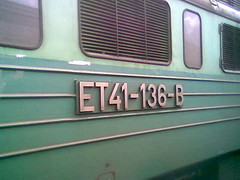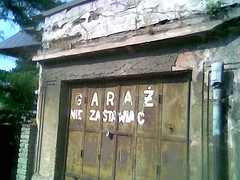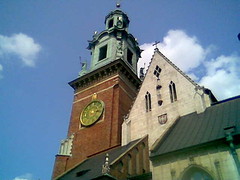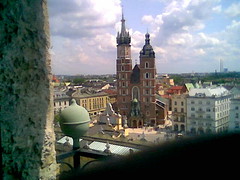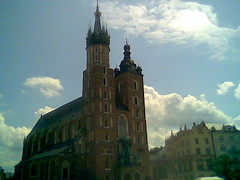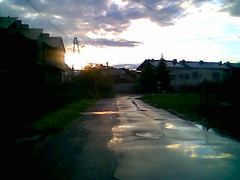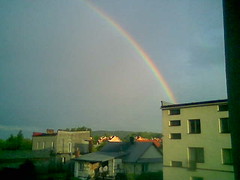Der Untergang
I went to see
Downfall the other evening -- the recent German film about the final days of Hitler and his inner circle in his Berlin bunker in 1945.
It's a pretty extraordinary film. If you have even the slightest interest in history, I really recommend that you go see it. I don't have a coherent view on it as yet (I think I need to go and see it again soon), but I do have some random thoughts...
It's two and a half hours long; it has two main sets -- the dimly-lit subterranean bunker complex, and artillery-ravaged Berlin; its subject matter is unremittingly bleak; and yet, despite all that, it never drags -- the time flew by. To make that happen, the director has to be doing something special.
It's gripping and dark: there's a sense of foreboding, and of inevitability, and you get caught up in the strange logic of the frenzied atmosphere, where suicide and self-immolation seems the only rational choice. The shells rumble and crash, the walls and ceilings shake, dust falls, lights flicker, the tension and the claustrophobia build.
There's a cast of the famous and the not-so-famous: Hitler, Eva Braun, Himmler, Speer, Bormann -- the Hitler circle; the military high command -- Keitel, Jodl et al; and the 'lesser' figures -- Hitler's secretary, Traudl Junge, various SS/Wehrmacht officers and men. What's both interesting and disturbing is the way that you get drawn into this world, and how you feel yourself engaging with these people as human beings, and sympathising/empathising with them. Given the repulsiveness of the Nazi ideology and its horrendous results, there's a bit of you that's resistant to this identification/empathy -- it seems like a betrayal. There's been controversy about the 'humanisation' of Hitler, and I guess that criticism could be extended more broadly across the rest of the characters -- you find yourself differentiating them into 'decent', 'good/bad' and so on, and then you pull yourself up, remembering that they're
all part of this inner circle, serving this monstrous man and ideology. But I think that's part of the richness of this film -- to make you look beyond the more 'comfortable' conception of alien monstrousness and see, instead, the reality of differentiation between people, all bound somehow to the same twisted, malevolent belief system. It feels like a truer reflection of messy reality to me.
Another criticism I've heard is that the film is somehow an apologia for the German people's part in the Nazi past -- the argument here seems to be that, by showing Hitler's tirades against the 'failed' German 'race', the film-maker is implicitly portraying the German people as 'victims' of Hitler, and thereby excusing/diluting their complicity in the Third Reich's dark history. And yet, in the film, there's an explicit rejection of this: Goebbels is given a speech that cites the responsibility of the people who -- in large numbers -- voted for Hitler and the Nazis in the 1933 elections; the essence of this speech is "this is what they chose". Given that, I find it hard to understand the criticism.
Traudl Junge, Hitler's secretary, tops and tails the film with brief interview excerpts, filmed when she was in her 80s (by my guess). In these segments, she reveals a (fairly typical, I think) disconnect between her own experience and the wider effects of Nazism -- as if she couldn't see that she was somehow implicated, or couldn't bring herself to make the connection. I think this echoes what Gitta Sereny wrote about Albert Speer.
Anyway, go and see it and make your own mind up. It's a pretty extraordinary experience.
